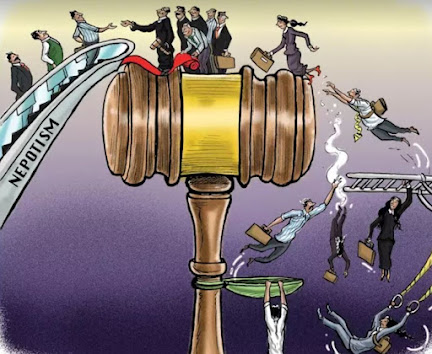Nepotism and favouritism in the legal profession
by Giorgos Kazoleas, Lawyer
Nepotism in the legal profession is not only a
domestic but a global phenomenon with timeless characteristics. Lack of meritocracy and
favouritism during the process of recruitment and professional development of lawyers have common sources of nepotism and clientelism.
In countries like India, the phenomenon of nepotism in the legal profession has particularly concerned the legal community, as there is a stronghold of a few privileged and powerful families which prevails in the legal profession. Among lawyers and judges, there is a strong tendency in the country for the children and grandchildren of lawyers and judges to carry on the professional tradition of their ancestors while first-generation lawyers face great obstacles in establishing themselves in the field of legal practice.
The prevalence of nepotism in the legal profession distorts healthy competition and seriously undermines professional equality and equal opportunities. The logic of operating a family company or office dominates as a conscious choice in the way and form of organization of legal professionals. Close relatives and friends are preferred not only to participate in the composition of companies and offices but also to be promoted or quickly rise in the hierarchy. On the contrary, lawyers without family legal background are limited to lower-ranking positions with heavy workloads and low salaries.
In fact, despite the legal profession being at first sight "open" to all, to the extent that it can be characterized as privileged, it is rather a "closed" profession that operates at two speeds (privileged and non-privileged lawyers).
Nepotism in the legal profession undermines the overall performance and level of legal services’ provision with a negative impact on society as recipients of these services. However, as it is related with characteristics of human nature, it seems to remain unchanged over time. (photo: linkedin.com)








Comments
Post a Comment